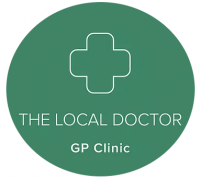High Cholesterol (hyperlipidaemia): Understanding, Treatment, and Lifestyle Management
Take Control of Your Cholesterol Levels for a Healthier Heart
By Dr Chris Irwin
High cholesterol is a common health issue that can lead to serious cardiovascular problems if not addressed. Fortunately, it is manageable through a combination of treatments and lifestyle changes. In this article, we will discuss what high cholesterol is, treatment options, and focus on dietary and lifestyle advice to help you maintain healthy cholesterol levels.
What is High Cholesterol?
Cholesterol is a waxy, fat-like substance that is essential for the proper functioning of your body. It is used to produce hormones, vitamin D, and bile acids, which help digest fat. Cholesterol travels through the bloodstream in small packages called lipoproteins, which are composed of fat (lipid) on the inside and proteins on the outside. Cholesterol is mostly made in the liver but your dietary cholesterol will definitely contribute.
Commonly high cholesterol often has a genetic or family origin. As with most things, high cholesterol often usually becomes a more of a problem as we get older. We focus on lifestyle treatments not because your lifestyle or diet is definitely “the cause” of the problem, but because we can’t change your genetics or your age!
There are two main types of lipoproteins:
- Low-density lipoprotein (LDL) – often referred to as “bad” cholesterol, as high levels of LDL can lead to plaque buildup in the arteries.
- High-density lipoprotein (HDL) – known as “good” cholesterol, as it helps remove LDL cholesterol from the bloodstream, reducing plaque formation.
High cholesterol, or hypercholesterolemia, occurs when there is too much LDL cholesterol in the bloodstream, increasing the risk of developing heart disease and stroke.
Treatment Options
It’s always a good idea to eat well and exercise and generally live a healthy life in moderation.
Treatment for high cholesterol generally involves a combination of lifestyle modifications, dietary changes, and medications. At the end of the day, high cholesterol is just another risk factor for heart disease or stroke. So if your doctor thinks you are otherwise at low risk of heart disease or stroke, you may not need any medical treatments, or your doctor may organise further tests to better clarify your risk (eg a CT coronary calcium score)
Your doctor may recommend one or more of the following treatment options
Statins:
These medications work by reducing the production of cholesterol in the liver and increasing the liver’s ability to remove LDL cholesterol from the blood. An example of a statin in Australia is “Rosuvastatin”.
Bile acid sequestrants: These medications help bind bile acids in the intestine, promoting the excretion of cholesterol. An example of this type of medicine in Australia is “Cholestyramine”.
Cholesterol absorption inhibitors: These medications reduce the absorption of dietary cholesterol in the small intestine. An example of this type of medicine in Australia is “Ezetimibe”
Dietary and Lifestyle Advice
In addition to medical treatment, adopting a heart-healthy lifestyle can help manage and prevent high cholesterol. Consider the following dietary and lifestyle changes:
Focus on a heart-healthy diet:
Always remember that if you would like more detailed dietary advice ask your doctor to refer you to one of our great dieticians at The Local Doctor! You may be eligible for a careplan that your doctor can write which can give you medicare subsidised access to one of our dieticians.
Increase your intake of fruits, vegetables, whole grains, and legumes.
Choose lean protein sources, such as fish, poultry, and plant-based proteins.
Opt for healthy fats, such as olive oil, avocados, and nuts, and limit saturated and trans fats found in fatty meats and processed foods.
Include foods rich in omega-3 fatty acids, such as fatty fish (salmon, mackerel, and sardines), flaxseeds, and chia seeds.
Limit your intake of added sugars and refined carbohydrates.
Maintain a healthy weight: Losing excess weight can help lower your LDL cholesterol levels and increase your HDL cholesterol levels.
Exercise regularly:
Aim for at least 150 minutes of moderate-intensity aerobic exercise or 75 minutes of vigorous-intensity aerobic exercise per week. Regular physical activity can help raise HDL cholesterol levels and lower LDL cholesterol and triglyceride levels.
Quit smoking:
Smoking can lower your HDL cholesterol and increase your LDL cholesterol levels. Quitting smoking can improve your cholesterol profile and reduce your risk of heart disease.
Limit alcohol consumption:
Moderate alcohol consumption (one drink per day for women and two drinks per day for men) may have some heart benefits. However, excessive alcohol consumption can raise cholesterol levels and increase the risk of heart disease.
High cholesterol is a manageable condition that sometimes requires a combination of treatments and lifestyle changes to prevent serious health complications. By focusing on a heart-healthy diet, maintaining a healthy weight, exercising regularly, quitting smoking, and limiting alcohol consumption, you can effectively manage your cholesterol levels and significantly reduce your risk of heart disease and stroke. Partner with your doctor to create a personalized plan that addresses your unique needs and risk factors. By taking proactive steps to improve your overall heart health, you can enjoy a longer, healthier life.

